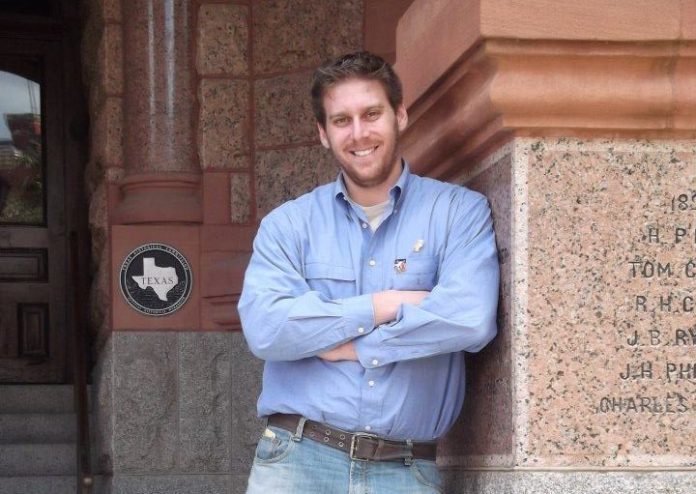
Charlie Sheen — yes, that Charlie Sheen — is attempting to collect about $120,000 in legal fees from Itamar Gelbman — yes, the controversial former Flower Mound councilman and current mayoral candidate — after Gelbman unsuccessfully sued Sheen for breach of contract, but instead the court found he “intentionally took advantage” of Sheen’s chronic inebriation.
The judge in the case found “that the testimony of Gelbman on every important issue is neither credible nor true” and that Gelbman tried to take advantage of a chronically intoxicated Sheen. And now, just last month, Sheen’s attorney filed a motion saying Gelbman has dissolved his company that is supposed to pay the legal fees, which Sheen’s attorney said is “designed to frustrate Mr. Sheen’s collection efforts and thwart the effect of the judgment.”
Attempts to reach Gelbman for comment Monday were unsuccessful.
The story of Gelbman and Sheen started more than six years ago. According to the final statement of decision by Hon. Robert S. Draper, judge of the Superior Court of California, Gelbman had long been trying to become Sheen’s security guard with the help of Lenny Dykstra — yes, apparently that Lenny Dykstra, the ex-major league centerfielder, ex-con and now ex-friend of Sheen’s.
In the early morning hours of Aug. 29, 2014, Gelbman — using a new company name 3 G.I. — met with Sheen, Sheen’s longtime attorney Martin Singer and others about becoming Sheen’s new security guard. Singer then spoke to Gelbman privately and told him that everyone employed by Sheen was employed “at will,” meaning that their services could be terminated at any time. Singer also told Gelbman that all contracts with Sheen had to be approved by Singer before they would be valid because at that time, Sheen was in “a state of chronic inebriation.” A former associate testified that Sheen drank about one-and-three-quarter bottles of liquor a day, and “every witness who testified in this case other than Gelbman testified that Sheen was constantly intoxicated during this period of time.” Gelbman, however, said he never saw Sheen intoxicated during the first two weeks he worked for him.
“This comparison can only lead to one conclusion: someone is dramatically altering the facts,” the judge wrote in his decision. “The Court concludes, based on all the evidence, that this person is Gelbman.”
According to the judge’s statement, Singer provided Gelbman with a written agreement with a provision making it clear that the contract was “at will,” and Gelbman signed it. But he had already prepared his own contract that stated the agreement with Sheen was for at least one year, and he printed that out and handed it to Sheen, not mentioning to Sheen that this contract was different than the one he he signed with Singer.
In the afternoon on that same day, Aug. 29, Gelbman emailed the “business terms” of the contract to Sheen’s business manager and said “the lawyers didn’t have a chance to go through the services contract,” even though he had Singer’s contact information and didn’t include him in the email. Gelbman didn’t have a lawyer, he knew Singer wasn’t aware of the contract with the one-year term, and he testified that this email used “template wording” and he “didn’t mean specifically a specific lawyer.”
“This testimony is without question the least credible testimony in the case, with one exception,” the judge wrote, referencing a statement by Gelbman that when he had Sheen sign the contract on Sept. 4, 2014, Gelbman said he assumed Sheen had talked about it with his lawyer.
“The Court finds that this testimony is not credible,” the judge wrote. “The evidence establishes that Gelbman knew that as a result of Sheen’s then chronic intoxication Sheen did not have the capacity to understand the nature and consequences of the document he was signing. The evidence also establishes that Gelbman intentionally concealed the contract from Sheen’s lawyers so that he could take advantage of this incapacity.”
Not long after hiring Gelbman, Sheen terminated the contract, and on Dec. 14, 2016, 3 G.I. filed a lawsuit against Sheen, alleging breach of contract because it violated the one-year term in the contract that Sheen signed. The trial by judge was held in October 2019, and the judge ruled in Sheen’s favor on April 16, 2020. But the legal action doesn’t end there.
After the trial, Sheen’s lawyer motioned for 3 G.I. to pay Sheen’s legal fees — about $120,000 — which the court granted. But soon after the judge’s final decision, Gelbman dissolved 3 G.I. on May 4, 2020, according to a motion filed by Sheen’s lawyer.
“Now that (Sheen) has a judgment against 3 G.I., it has ceased to exist,” says the motion filed March 8, 2021. “If the court does not grant this motion … it would allow Mr. Gelbman … to escape financial responsibility.”
Sheen provided a statement in the court filing, saying Gelbman was his security guard briefly in 2014 and was the only person he dealt with when he was providing security services. The motion by his lawyer makes the case that Gelbman was the only employee and shareholder of 3 G.I., and that he and 3 G.I. are one and the same, so Gelbman should still be responsible for the legal fees.
A court hearing is scheduled for June 9.
A few months after he became Sheen’s security guard, Gelbman was appointed to the Flower Mound Planning & Zoning Commission in late 2014. The next year, he successfully ran for Town Council, but lost reelection in 2017. He ran for county commissioner in 2018, coming in fourth out of four candidates in the Republican primary. He is now one of five candidates for mayor of Flower Mound in the May 1 General Election.
Click here to view the latest court filing.
Click here to view the judge’s final decision and other related court filings.



















